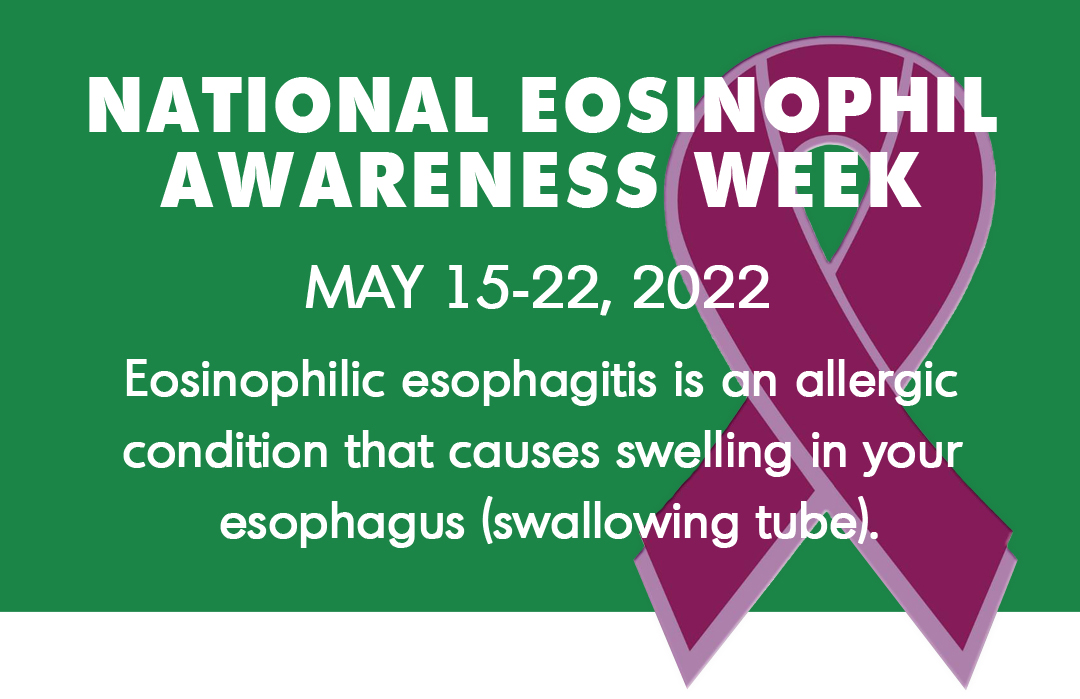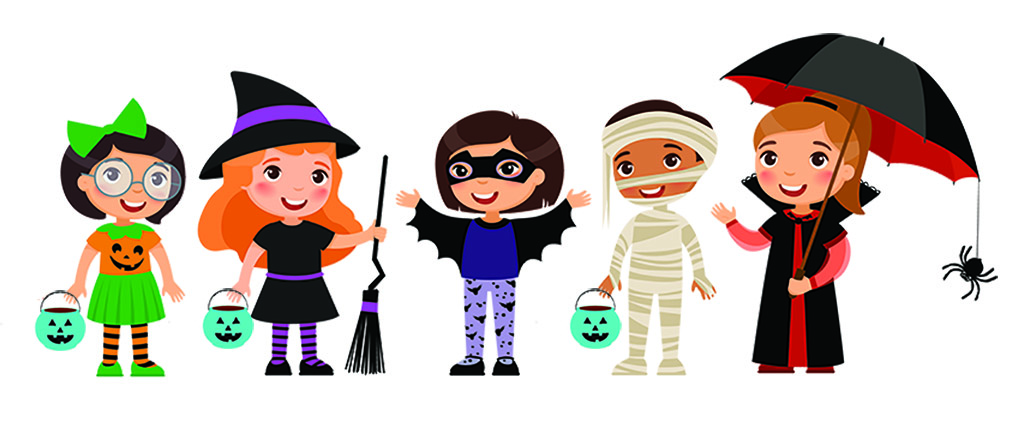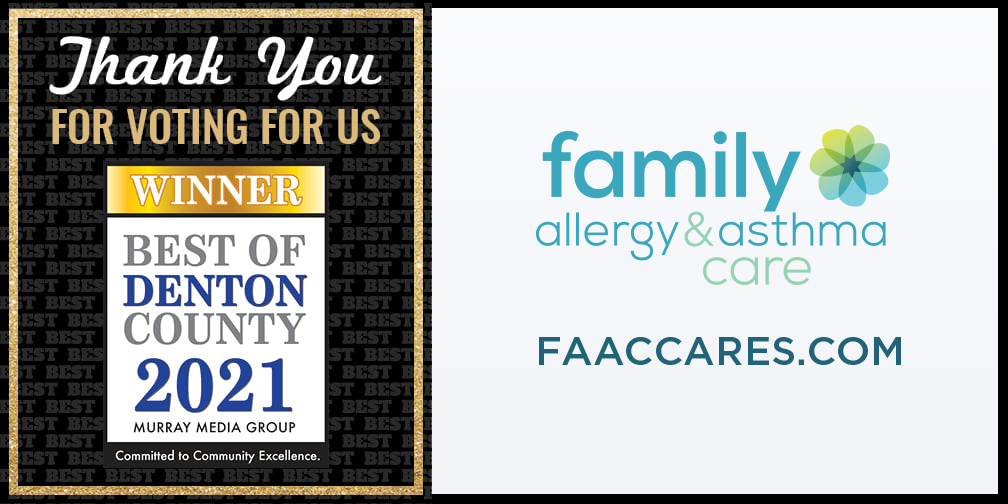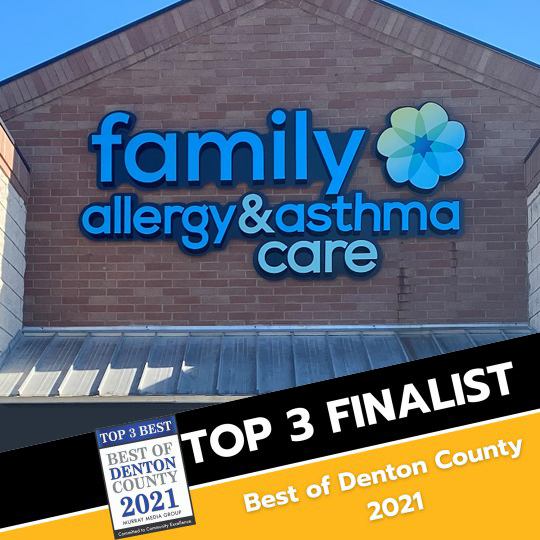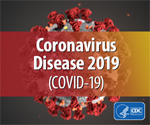It's National Eosinophil Awareness Week (May 15-21, 2022)! Have you heard about this allergic condition? Eosinophilic [EE-oh-sin-oh-FILL-ick] esophagitis [uh-sof-uh-JIE-tis] − “EoE” for short − causes swelling in your esophagus (swallowing tube). The esophagus is in an upper part of the gastrointestinal (GI) tract (gut) and is the tube that moves food from your mouth to your stomach when you swallow. EoE happens when a large number of white blood cells called eosinophils [EE-oh-sin-oh-FILLS] collect and cause damage in the lining of the esophagus. It is often an immune response to food, but in some cases, environmental pollen can also trigger EoE. (https://www.kidswithfoodallergies.org/eosinophilic...) Have questions? Our board-certified allergists, experienced PAs and friendly office staff are here to help you find comfort and relief. CLICK HERE to contact us today. Learn more at the Facebook page for National Eosinophil Awareness Week.




